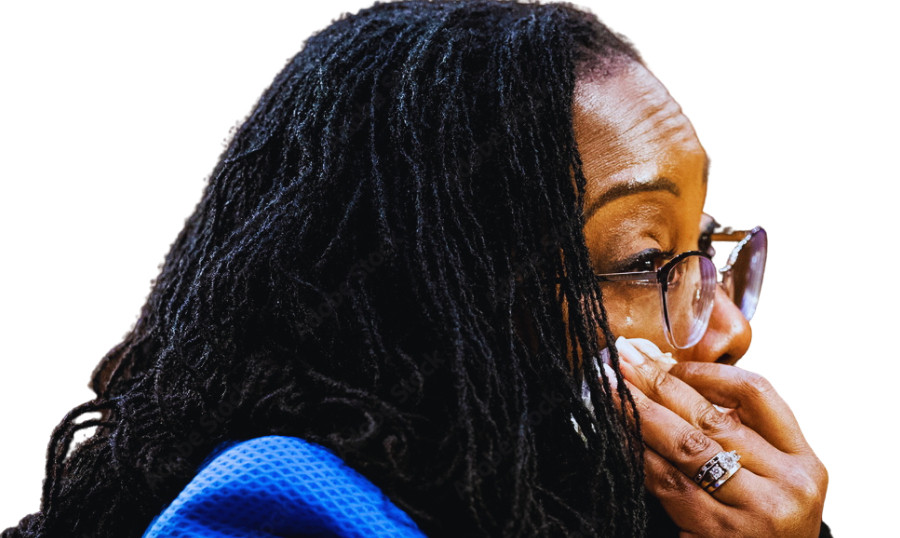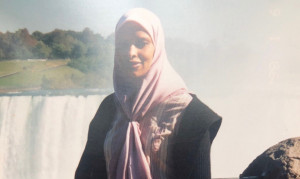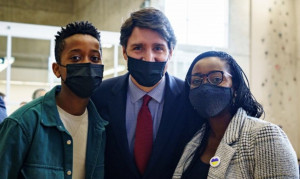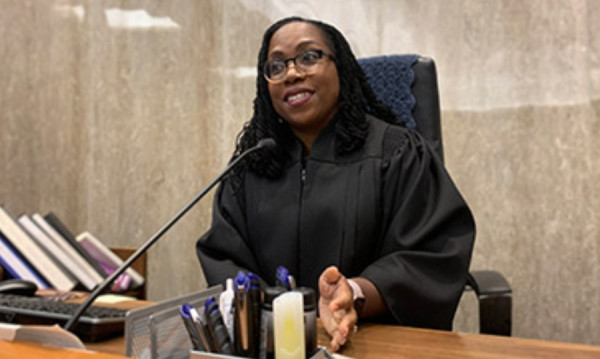Brown-Jackson sat there day after day while Republican Senators attempted to find a flaw, attempted to bring her down to their level, and attempted to drag her through the mud.
But there was no mud.
When you’re a Black woman and you build a career as Judge Ketanji Brown-Jackson has built, there can be no mud. You need to be faultless, flawless, and supreme, which she is. KBJ has THE MOST experience you can have. When the Washington Post measured how she stacked up against her future peers (meaning, all the current members of SCOTUS), she borders on being overqualified. She has been a district judge, a Court of Appeals judge, a Supreme Court clerk, a public defender, she sat on the sentencing commission and is a Harvard alumna. There are no gaps. She doesn’t miss. She has more experience than a couple of presently serving Supreme Court justices combined.
So all of my Olivia Pope fans, say it with me now, twice as hard. We, Black women, have to work twice as hard, have to produce twice as much; all in order to make it into spaces like that confirmation hearing. And even when we make it, we have to suffer through harmful microaggressions like the media’s inability to pronounce ‘Ketanji’, and trending hashtags have added an extra “n” to her name and was used around 1.2 million times. But the microaggressions don’t even compare to the macroaggressions that required KBJ to justify her presence while some incompetent, entitled and simple-minded men attempt to discuss baby books… this is nothing short of a sick joke out of a dystopian young adult novel.
If confirmed, Ketanji Brown-Jackson will be the first Black woman (and third Black person; after the late Thurgood Marshall and the currently serving associate justice Clarence Thomas) to serve as an associate justice on the SCOTUS.
Black people in the U.S. comprise around 12.4% of the citizenry (census.gov) and are overrepresented in the prisons by about 3 times with 38.3% of all U.S. inmates identifying as Black (bop.gov). The need for Black representation on the Supreme Court is dire. And although Clarence Thomas is there, may I remind you that both he and another (white) man (Brett Kavanaugh) are accused sexual predators. Let me restate this for clarity. There are currently two associate justices on the Supreme Court of the United States who were barely held accountable, much less dragged through the mud for allegedly sexually assaulting women, but Ketanji Brown-Jackson has to defend a record of perfection with questions about Ibram X. Kendi’s book “How to be an Anti-Racist Baby”? In a country where the VP is a Black woman? Wild.
Twice as good.
This is not dissimilar from what Black women experience in workplaces across North America. We are highly scrutinized for our abilities as a candidate for an open position. Once brought into the organization, we are often underestimated, or even infantilized, with co-workers and colleagues: mansplaining, distracting us with questions about our hair, or calling us “girrrllll”.
You underpay us, underplay our capacity to undertake leadership roles and worry about whether we will be radicalized, all while congratulating us for our strength and poise. You complain that we’re not the type of people you can go out and have a beer with, but you have created the conditions in which that is not possible. Work is not a safe place for us, we show up, tolerate disrespect and mistreatment because we must… because to who much is given, much is expected.
Cory Booker said it best when he said that Ketanji Brown-Jackson reminded him of all of the Black women who have come before him. The women who have outperformed, overcome systems of equality and still stand strong.
The worst part, to me, is that the treatment we witnessed in that confirmation hearing is expected for and tolerated by Black women. They didn’t do that to Clarence Thomas (a Black man) and they didn’t do that to Amy Coney-Barrett. It’s a form of vengeance reserved for us and we know this, so we clench our teeth and stand there, hoping it will be better for the next generation.

 By
By 






